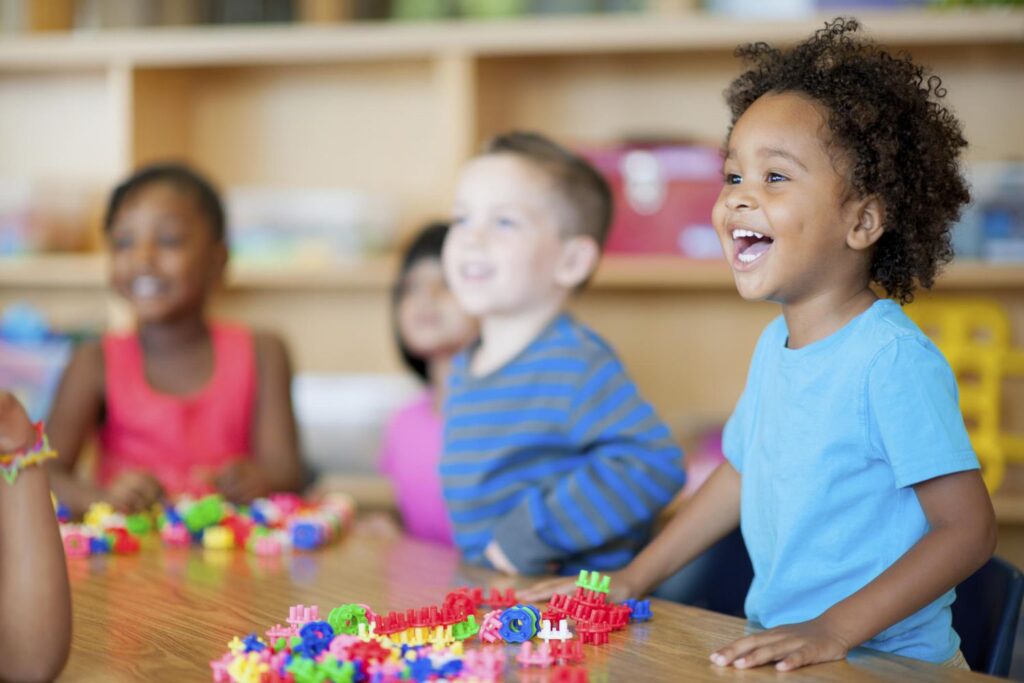NYC School Calendar 2025 – The New York City Department of Education (NYC DOE) oversees a comprehensive K-12 education system and offers a wide range of courses to students in its public schools. While the specific number of courses can vary from school to school and grade level to grade level, here are some common categories of courses typically offered in the NYC DOE:
- Core Academic Subjects:
- English Language Arts (ELA)
- Mathematics
- Science
- Social Studies
- Foreign Languages (e.g., Spanish, French)
- Elective Courses:
- Art
- Music
- Physical Education
- Technology Education
- Career and Technical Education (CTE) courses
- Health Education
- Advanced and Honors Courses:
- Advanced Placement (AP) courses
- Honors courses in various subjects
- Specialized Programs:
- Gifted and Talented programs
- Special Education programs
- English as a Second Language (ESL) courses
- Career and Technical Education (CTE) programs
- College and Career Readiness Programs:
- College preparatory courses
- Work-based learning experiences
- Internships and apprenticeships
- Extracurricular and Enrichment Programs:
- Clubs and organizations
- Athletics
- Fine arts programs
- Debate teams
- STEM (Science, Technology, Engineering, and Mathematics) programs
The NYC DOE aims to provide a well-rounded education, and as such, the range of courses and programs available is quite extensive. The specific courses offered may vary from school to school, and students often have opportunities to choose elective courses based on their interests and career goals. Additionally, the NYC DOE continually updates its curriculum and offerings to align with educational standards and meet the diverse needs of its students.
These NYC Calendars also provided here:

NYC School Calendar 2025-26 With Holidays
The New York City Department of Education (NYC DOE) typically observes several holidays and breaks during the school year. While the exact dates may vary slightly from year to year. Here are some of the common holidays and breaks that are often included in the NYC DOE calendar:
- Labor Day: Usually observed on the first Monday in September, marking the unofficial end of summer and the beginning of the school year.
- Thanksgiving Recess: Typically includes the Thursday and Friday of the fourth week in November, allowing students and staff to celebrate Thanksgiving.
- Winter Break: A winter recess that typically spans from late December to early January, coinciding with the holiday season and New Year.
- Martin Luther King Jr. Day: Celebrated on the third Monday in January, honoring the civil rights leader Dr. Martin Luther King Jr.
- Midwinter Recess (February Break): A short break in mid to late February, providing students and staff with a brief respite during the winter months.
- Spring Break: Usually scheduled in March or April, offering students a week-long break from classes.
- Memorial Day: Observed on the last Monday in May, honoring the men and women who have died while serving in the United States Armed Forces.
- Independence Day: Celebrated on July 4th, marking the anniversary of the Declaration of Independence. This holiday falls during the summer vacation period for students.
Please note that the exact dates for these holidays and breaks can vary from year to year. The NYC DOE may also include additional days off for professional development, parent-teacher conferences, and other events.
NYC School Calendar 2025 Schedule [DOE]
The New York City Department of Education (NYC DOE) administers a variety of exams and class tests throughout the school year to assess student progress and achievement. Here’s a detailed overview of the exam and class test process in the NYC DOE:
- Scheduling and Timing:
- Exams and class tests are typically scheduled in accordance with the school’s academic calendar.
- There are standardized state exams, such as the New York State English Language Arts (ELA) and Mathematics exams, which are usually administered annually. These tests have specific testing windows, often in the spring.
- Types of Exams and Tests:
- State Exams: These are standardized tests mandated by the state of New York. They assess student proficiency in subjects like ELA and Mathematics.
- Local Exams: Schools may administer their own tests and assessments to evaluate student progress and understanding of specific content.
- Preparation:
- Teachers prepare students for exams and class tests by covering relevant content in their classes.
- Students often receive study materials and practice questions to help them prepare.
- Administering Exams and Tests:
- On the day of the exam or class test, students report to their designated testing locations within the school.
- Exams are typically proctored by teachers or staff members to ensure fairness and adherence to testing procedures.
- Taking the Exam:
- Students complete the exam or class test according to the provided instructions and time limits.
- Special accommodations may be made for students with disabilities or other special needs, as required by law.
- Scoring and Grading:
- After the exams or class tests are completed, they are sent for scoring.
- State exams often undergo rigorous scoring procedures to maintain accuracy and consistency.
- Results and Reporting:
- Student results are typically provided to schools and families within a specified time frame.
- Schools use these results to assess student progress, identify areas for improvement, and plan interventions as needed.
- Use of Results:
- Exam and test results may be used for various purposes, including determining student promotion or retention, informing curriculum adjustments, and identifying schools in need of additional support or intervention.
It’s important to note that the specific procedures and timing for exams and class tests may vary depending on grade level, subject, and the particular school within the NYC DOE system. Additionally, the NYC DOE may make changes to its testing and assessment processes over time in response to educational policies and priorities.
NYC DOE Academic Calendar 2025
The New York City Department of Education (NYC DOE) provides a general academic calendar that outlines key dates and holidays for all New York City public schools. This calendar serves as a framework for the school year and includes common dates such as the first and last days of school, major holidays, and scheduled breaks. However, there can be some variations and flexibility in the schedule for specific schools or programs. Here are some key points to consider:
- Common Calendar: The NYC DOE releases a common academic calendar that applies to most public schools in the city. This calendar includes the start and end dates of the school year, holidays like Thanksgiving and winter break, and other important dates.
- School-Specific Variations: While the common calendar provides a baseline, individual schools or programs within the NYC DOE may have variations in their schedules. For example, some schools may have extended school days, different start times, or unique professional development days for teachers.
- Charter Schools: Charter schools in New York City operate independently of the traditional public school system and may have their own academic calendars. While some charter schools may align closely with the NYC DOE calendar, others may have variations.
- Specialized Schools: Specialized schools, such as those for gifted and talented students or career and technical education (CTE) schools, may have unique schedules and programs tailored to their specific focus areas.
- Alternative Programs: Alternative programs and schools, designed to meet the needs of students with different educational requirements, can have distinct schedules that differ from traditional schools.
- COVID-19 Impact: The COVID-19 pandemic has also introduced flexibility into school schedules, with remote learning days, hybrid models, and adjustments to the school calendar to accommodate health and safety protocols.
The NYC DOE typically releases the academic calendar for the upcoming school year well in advance to allow families and educators to plan accordingly.
NYC DOE Results
The New York City Department of Education (NYC DOE) typically follows a standardized schedule for releasing student test scores and academic results. However, it’s important to note that the specific timing of result releases may vary slightly from year to year. Here is a general overview of the NYC DOE results schedule:
- State Test Results:
- English Language Arts (ELA) and Mathematics: The results of the New York State ELA and Mathematics exams for students in grades 3 through 8 are usually released in late summer or early fall following the administration of the tests in the spring.
- High School Regents Exams: Regents exam results for high school students are typically released a few weeks after the exams are administered, usually in July or August.
- Individualized Education Program (IEP) Progress Reports:
- For students with disabilities who have Individualized Education Programs (IEPs), progress reports are typically provided to parents and guardians multiple times throughout the school year. These reports detail the student’s progress toward IEP goals and objectives.
- Report Cards:
- NYC public schools typically issue report cards to students multiple times during the school year. The number of report card cycles may vary by grade level.
- Report cards typically include grades, attendance records, and teacher comments.
- High School Transcript and Diploma:
- High school transcripts and diplomas are typically provided to graduating seniors upon successful completion of their graduation requirements. The exact timing of diploma distribution may vary by school.
- Specialized School Results:
- For students applying to specialized high schools or other specialized programs, results are typically released according to the specific admissions timeline, which may vary from year to year.
- Parent-Teacher Conferences:
- NYC public schools often schedule parent-teacher conferences throughout the school year to discuss student progress and performance. Parents and guardians can use these conferences as opportunities to discuss their child’s academic standing.
- Online Portals and Communication:
- Many NYC public schools use online portals or communication platforms to keep parents and guardians informed about student progress and to share test scores, assignments, and other important information throughout the school year.
Please keep in mind that the NYC DOE may adjust its schedules and procedures from year to year. The individual schools may have their own specific timelines for communicating results and progress to students and families. To obtain the most current and detailed information about result release schedules for a specific school or academic year. It is advisable to consult the school’s website or contact the school directly.
![NYC School Calendar Holidays [New York]- NYC DOE Calendar❤️](https://nycschoolcalendar.us/wordpress/wp-content/uploads/2023/09/nyc-school-calendar.png)
